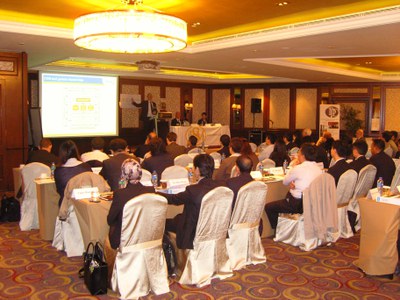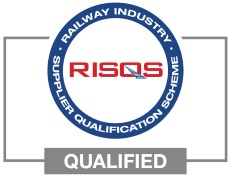iESM

The International Engineering Safety Management Handbook
Technical Programme Delivery (TPD) has launched updated guidance on Engineering Safety Management that focuses on the needs of the international rail community. The new iESM Guidance was presented at the first User Group in Hong Kong on 11th April 2013 where an international selection of speakers, including RSSB from UK, Lloyd’s Register and MTR Corporation discussed emerging good practice in the field.
The development of the new iESM has been guided and adapted by expert practitioners from around the world, in response to strong demand from railway clients and suppliers to have a single handbook that can be used internationally. Dr Rob Davis’ team in British Rail started the work on an engineering safety management handbook called “Yellow Book” in 1992 and published the first version in 1996. Issue 4 of Yellow Book was withdrawn in 2012 as it had become out of date, leaving a “missing piece” for safety practitioners around the world.
In his keynote speech Dr Jacob Kam, Operations Director of MTR Corporation, said;
“I am extremely pleased that the iESM Handbook and associated training is now available. Associated training is very important to MTR. Before the Yellow Book was withdrawn, it provided MTR with guidance on safety management arrangements for railway engineering and now the iESM Handbook will enable us to update our arrangements.”
Mr Nelson Ng Wai Hung MTR’s General Manager – Safety & Quality added that MTR was very pleased to have sponsored the working Group for iESM, which had brought many benefits to participants.
Commenting at the launch, Dr Rob Davis, TPD Director and Chair of the iESM Working Group said;
“The aim of the iESM Working Group is to support the international rail industry in delivering acceptable levels of safety efficiently and cost effectively by sharing and documenting good practice in railway Engineering Safety Management from around the world. On passing the iESM exam practitioners will become registered, the accreditation a recognition of their qualifications and experience. We are grateful to MTR for sponsorship of the iESM Working Group, which is symbolic of the fact that expertise is no longer UK centric.”
The iESM launch was followed by a half-day training session where delegates attended a refresher and conversion course to become amongst the first to bring themselves up to date with the latest developments in the iESM Handbook. Over eighty people participated in an optional examination allowing their names to be recorded on the register of practitioners that is available on www.intesm.org.
Mr Paul Cheeseman, Director TPD, said;
“We developed iESM to include the use of Standards and reference systems so not only is it a way of complying with the European Common Safety Method, but more importantly, it allows a single safety framework to include the more mature branches of engineering such as civil engineering where greater reliance is often placed on Standards. The iESM Handbook also has considerable experience-based guidance on Cross Acceptance.”
Members of the iESM Working Group supporting the launch include representatives of MTR Corporation, Technical Programme Delivery Ltd, London Underground Limited, Lloyd’s Register Rail, Electrical and Mechanical Services Department of the Government of Hong Kong, EC Harris, Bombardier Transportation; RailCorp Australia, Australian National Rail Safety Regulator, CRSC (China), Rio Tinto, Beijing MTR Corporation and Beijing TCT.
The new guidance is available on www.intesm.org and can be freely downloaded.

